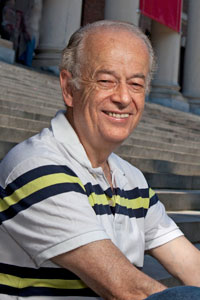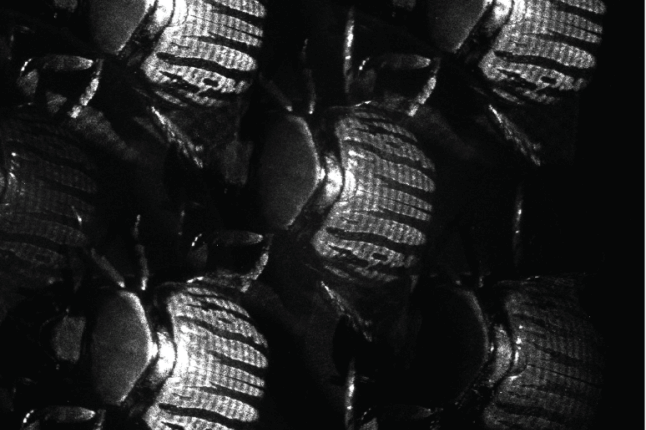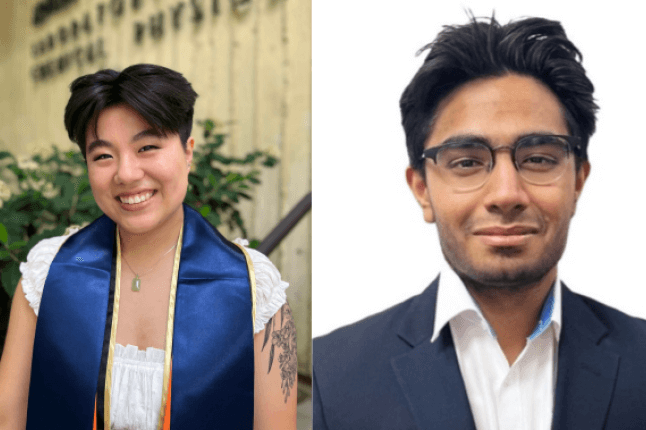News
As part of its jubilee year the Faculty of Engineering (LTH) at Lund University will appoint five individuals as honorary doctors, including Federico Capasso from SEAS. (Image courtesy of Lund University.)
The Faculty of Engineering (LTH) at Lund University has decided to appoint Federico Capasso, Robert L. Wallace Professor of Applied Physics and Vinton Hayes Senior Research Fellow in Electrical Engineering at the Harvard School of Engineering and Applied Sciences (SEAS), as an honorary doctor.
Capasso will be among five individuals receiving honorary doctorates at the University’s doctoral degree ceremony in Lund Cathedral on May 27, 2011.
Usually only very few honorary doctorates are awarded each year, but because LTH is celebrating its 50th anniversary as a school of engineering this year, five awards are being made, one for each decade.
“With these five honorary doctors we want to demonstrate LTH’s breadth and diversity. The individuals’ work reflects LTH’s important role in influencing regional development, interacting with Europe for a sustainable society, cutting-edge research, internationalization and innovative enterprise,” says Anders Axelsson, Dean of LTH.
Capasso has influenced the research carried out in Lund in various ways, both within basic experimental and theoretical semiconductor physics and for applications focused on high-speed electronics and nanophotonics. He visits Lund several times a year and also acts as an adviser to several companies at Ideon Science Park.
He received the Doctor of Physics degree, summa cum laude, from the University of Rome, Italy, in 1973. After a 27-year career at Bell Laboratories, he came to Harvard in January 2003.
Capasso’s research in nanoscale science and technology has covered abroad range of topics starting with his pioneering research on bandgap engineering of artificially structured semiconductor material and devices.
This research culminated in the invention and first demonstration by Capasso and his group at Bell Labs in 1994 of quantum cascade (QC) lasers. Capasso showed that by varying the thickness of layers in the active region, it is possible to select the wavelength at which a QC laser will emit light, customizing it for a specific application.
Other highlights of his research include the investigation of the Casimir effect (the attraction between any pair of macroscopic bodies due to quantum fluctuations of vacuum) and in particular the first measurement of a repulsive Casimir. He has also worked on plasmonics, demonstrating laser antennas capable of creatinghigh-intensity nanoscale light spots for optical recording and highly collimated beams.
He has been widely honored for his interdisciplinary research infields such as materials science, solid state physics, electronics, catatonics. His honors include membership in the National Academy ofSciences, the National Academy of Engineering, and the American Academy of Arts and Sciences. This past July, Capasso earned the 2010 Berthold Leibinger Zukunftspreis (the future prize) for excellent research on the application or generation of laser light.
In 2005 he received, jointly with Nobel Laureate Frank Wilczek (MIT)and Anton Zeilinger (University of Vienna), the King Faisal International Prize for Science for his research on QC lasers. The citation called him “one the most creative and influential applied physicists in the world.”
In addition to Capasso, the other honorees include Charlotta Falvin, Senior Director of Research in Motion (RIM); Lena Ek, a specialist in international public law snf Member of the European Parliament (Centerpartiet); Giancarlo Spinelli, Professor of Theoretical Mechanics at Politecnico di Milano; and Örjan Larsson, a civil engineer and an LTH alumnus.
Topics: Applied Physics
Cutting-edge science delivered direct to your inbox.
Join the Harvard SEAS mailing list.
Scientist Profiles
Federico Capasso
Robert L. Wallace Professor of Applied Physics and Vinton Hayes Senior Research Fellow in Electrical Engineering




